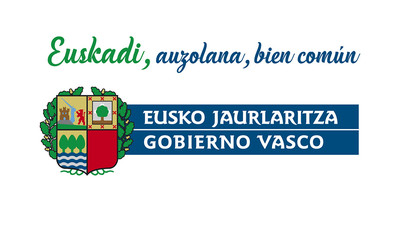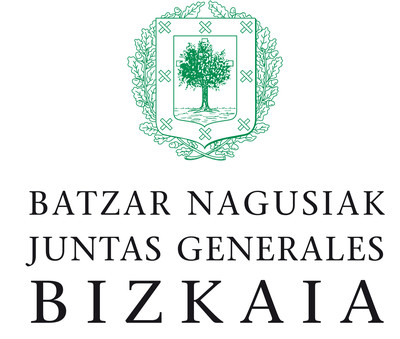PRESENTATION
2025 starts with the ultimate representation of German romanticism, Tristan und Isolde, by Richard Wagner, paradigm and fundamental milestone in the history of opera whose prelude definitely laid the foundations for a new compositional path. Sponsored by BBVA Foundation
This musical drama in three acts with a libretto by the composer himself about the romance of Gottfried von Strassburg, which in turn is based on the medieval legend of “Tristan”, tells a love story beyond this world, with room for the most ruthless revenge, the most intoxicating sensuality, the bitterest betrayal and the most heart-breaking loneliness.
To face the great challenge that its musical complexity entails, especially for the leading couple, ABAO has brought together a cast headed by Oksana Dyka, currently one of the most important dramatic sopranos, as Isolde, and the Welsh Gwytn Hughes Jones, in his debut at ABAO, as Tristan.
With them, the mezzo-soprano Daniela Barcellona as the vigilant Brangäne; Marko Mimica as König Marke, to whom Wagner gives an intense and sorrowful monologue in the second act; and Egils Silins as Kurwenal.
On the podium, conducting a stunning score full of emotion and Wagnerian poetic intensity, Maestro Eric Nielsen, leading the Bilbao Orkestra Sinfonikoa. The chromaticism, tonality and colour of the score, the famous “Tristan chord” and the leitmotif marked a new visionary, revolutionary and avant-garde approach to musical composition.
On stage, a production by Teatro de la Maestranza devised by Allex Aguilera, with a classical style but a modern production, recreating Tristan and Isolde’s dream world with new video creation technologies that provide a beautiful visual impact.

ARTISTIC SHEET
CAST
- Isolde
- Isolde
- Tristan
- König Marke
- Kurwenal
- Melot
- Brangäne
- Ein Hirt / Stimme
- Ein Steuermann
ARTISTIC TEAM
- Director De Escena|escenografía
- Video
- Director Musical
- Coach De Idioma
- Vestuario
- Iluminación
- Asistente Director Musical Y Director De Banda Interna
- Producción
- Director Del Coro
- Orquesta
MULTIMEDIA
SYNOPSIS
Background
To free Cornwall from paying tribute to Ireland, Tristan, nephew of King Marke of Cornwall, killed Morold, the champion of Ireland, in a hand-to-hand combat. Seriously wounded in the battle, Tristan made his way to Ireland, where, under the assumed name of Tantris, he was healed by the magical arts of Isolde, the king’s daughter. Isolde, betrothed to Morold, recognised Tristan (a piece that had broken off from his sword matched the fragment in Morold’s head), but spared his life. On his return to Cornwall, to satisfy jealous courtiers that he was not aspiring to the throne, Tristan persuaded his uncle to ask for Isolde’s hand.
ACT I
An extensive Prelude, with a dissonant chord that is not resolved in the first measures, is presented as a slow progressive ascent, a climax and an equally slow and gradual descent. On board of Tristan’s ship, which is returning from Ireland to Cornwall, Isolde, raging at her fate, laments that she does not have her mother’s magical arts to bring about a storm to wreck the ship. She is angry because Tristan remains apart and sends her attendant Brangäne for him. Tristan mildly answers that he must steer the ship, but his retainer Kurwenal roughly answers that Tristan is not Isolde’s vassal, singing a vigorous song, which is taken up by the sailors and clearly audible to the princess, celebrating Tristan’s killing of Morold.
Isolde tells Brangäne how she had spared Tristan’s life when he was in her power and complains bitterly that he has repaid her by going to fetch her as his old uncle’s bride, an insult that no one would have dared if Morold were alive and Cornwall still owed tribute to Ireland. Brangäne reminds her that she has the love potion that her mother had given to her, but Isolde can only think of the poison that is in the same chest. When Kurwenal announces their imminent arrival in Cornwall and tells her to prepare to land, she gives him a message for Tristan: he must make amends for an unatoned wrong. She then orders Brangäne to pour the poison into a golden goblet.
When Tristan arrives, she reproaches him for having avoided her during the voyage. He replies that he intended no discourtesy, but rather greater respect by keeping his distance from his uncle’s bride. Isolde claims that Morold’s blood still lies between them, as she has not been party to any reconciliation. He offers his sword for her to kill him if Morold was so dear to her, but she says that, if she killed him, King Marke would hold it against her. Instead, she offers him a drink of atonement. Understanding her intention, Tristan drinks and Isolde takes the goblet and drinks the remainder. But Brangäne has poured the love potion in the goblet and they fall into each other’s arms, oblivious of everything around them. The ship reaches land and King Marke approaches to welcome his bride.
ACT II
A garden outside Isolde’s chamber in King Marke’s castle in Cornwall. Isolde is waiting for Tristan while the King and his court leave on a hunt. She brushes aside Brangäne’s warning about the danger she is in, particularly from Melot, but she answers that he is Tristan’s friend and has arranged the hunt so that Tristan can meet her. Brangäne, full of remorse for the part she has played in the love between Tristan and Isolde, begs her to postpone the meeting. But Isolde answers that not her, but rather love itself (Frau Minne) is responsible for their love. She gives the signal by extinguishing a torch and asks Brangäne to stay nearby and watch.
Tristan arrives and the lovers embrace, praising the night as the friend that auspices their love, as opposed to the day, which is unfriendly to them. The night, as Tristan explains, is equivalent to death, and death will not part them, but unite them forever: only in death can their love be truly fulfilled. They both ignore Brangäne’s warning of the approach of day and are taken by surprise when Kurwenal rushes in, followed closely by King Marke, Melot and the court.
King Marke rejects Melot’s claim to have saved him from shame, as nothing can remove the deep wound of Tristan’s betrayal. He wonders why Tristan, his dearest friend, has betrayed him, recalling that, when his wife died, he refused to marry again for Tristan’s sake, as he wanted him to be his heir, only giving in to the wishes of his people when Tristan added his voice to theirs. Tristan had found him a peerless bride and his joy in her had made him more vulnerable than before. Tristan replies that he is unable to offer an answer that his uncle would understand. He asks Isolde if she will follow him in death. She agrees and he kisses her on the forehead, arousing the anger of Melot, who draws his sword. Tristan also draws his sword to defend himself, but lets it fall and Melot severely wounds him.
ACT III
Convalescing in his ancestral castle in Brittany, Tristan, with his wound still unhealed, lies under a tree while a shepherd plays a mournful tune and keeps watch for a ship that is bringing Isolde. Tristan wakes, but he does not know where he is. Kurwenal tells him that he has been brought home to recover from his wound. Tristan replies that he has already been in death’s kingdom and has only returned to meet Isolde, who is still in the realm of light.
Kurwenal explains that they have sent for Isolde, as the only one able to heal his wound, as she had done before. In delirious excitement, Tristan thinks that he sees the ship approaching. When he finds out that this is not so, the shepherd’s sad tune reminds him of the same song that accompanied the grief of his childhood, when he learnt that his father had died before he was born and his mother on giving birth to him. He curses the potion, bearing both love and death, which he himself had prepared. The shepherd’s tune now becomes cheerful: the ship has been sighted. As Kurwenal goes to the shore to meet Isolde, Tristan tears off the bandage from his wound. He is only able to murmur Isolde’s name before dying at the princess’ feet as soon as she arrives. As she reproaches him for dying before her, a second ship is sighted.
Kurwenal tries to close the door as King Marke and Melot arrive with Brangäne. Kurwenal kills Melot and is in turn killed by Marke’s men, falling at his master’s feet. The King grieves when he finds this carnage. Brangäne had told him of the potion she had given them, and had not only forgiven Tristan and Isolde, but had come to unite them. Isolde, completely oblivious to what is happening around her, starts her transfiguration to join her beloved Tristan in death.



























































